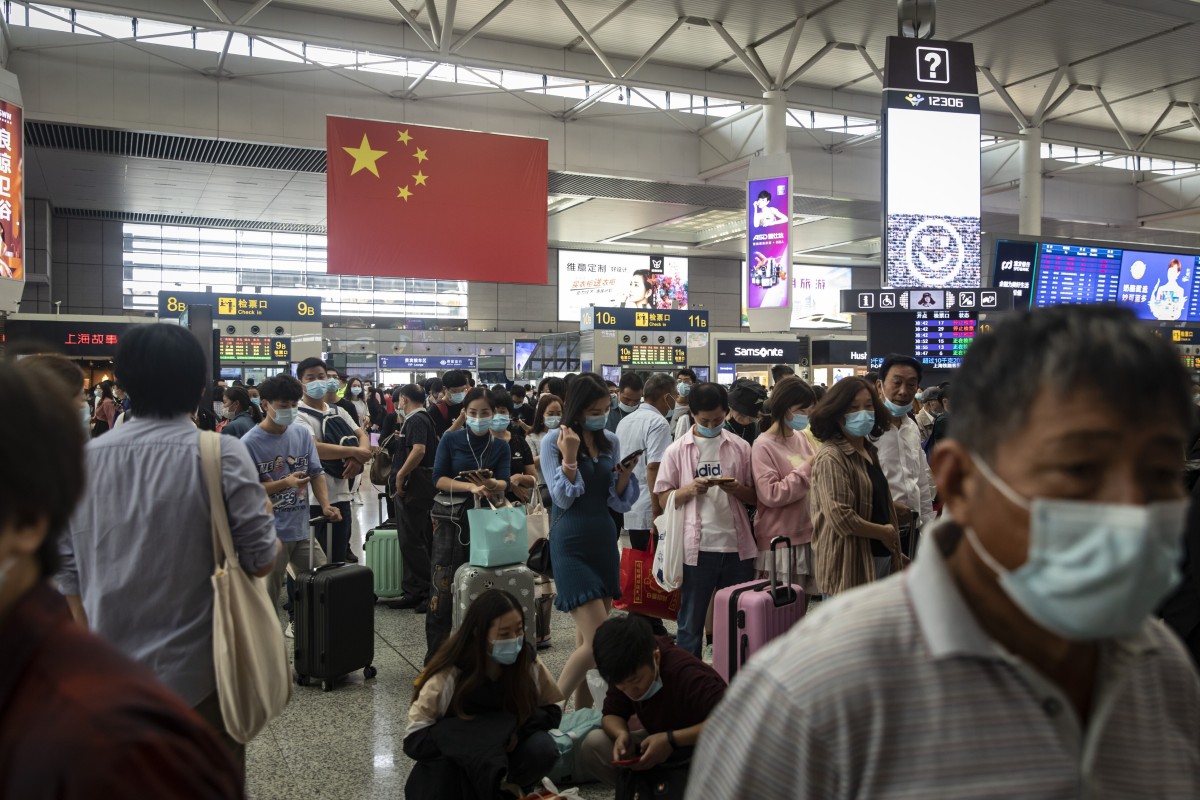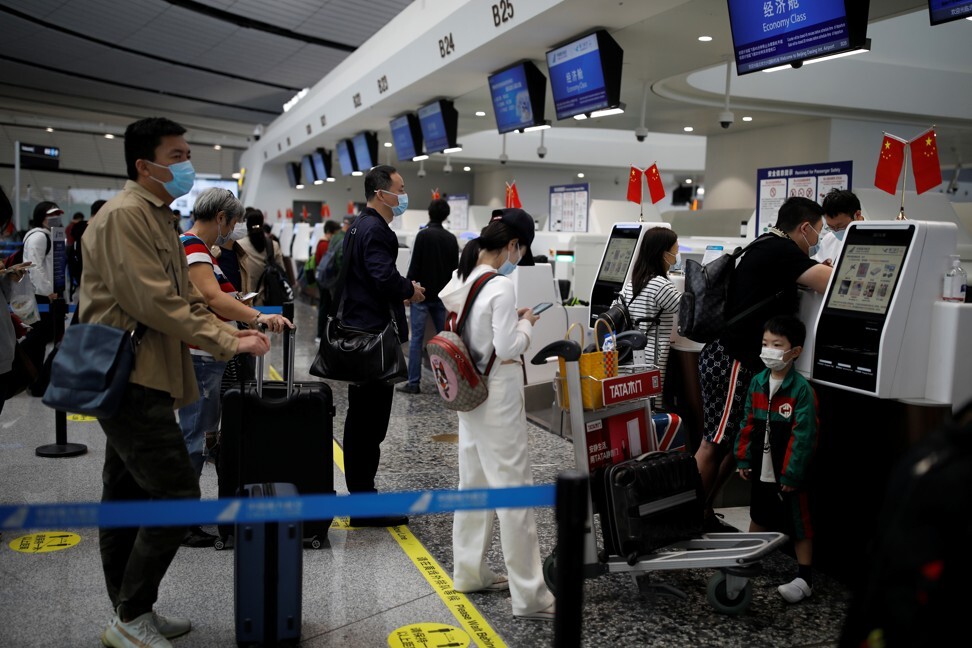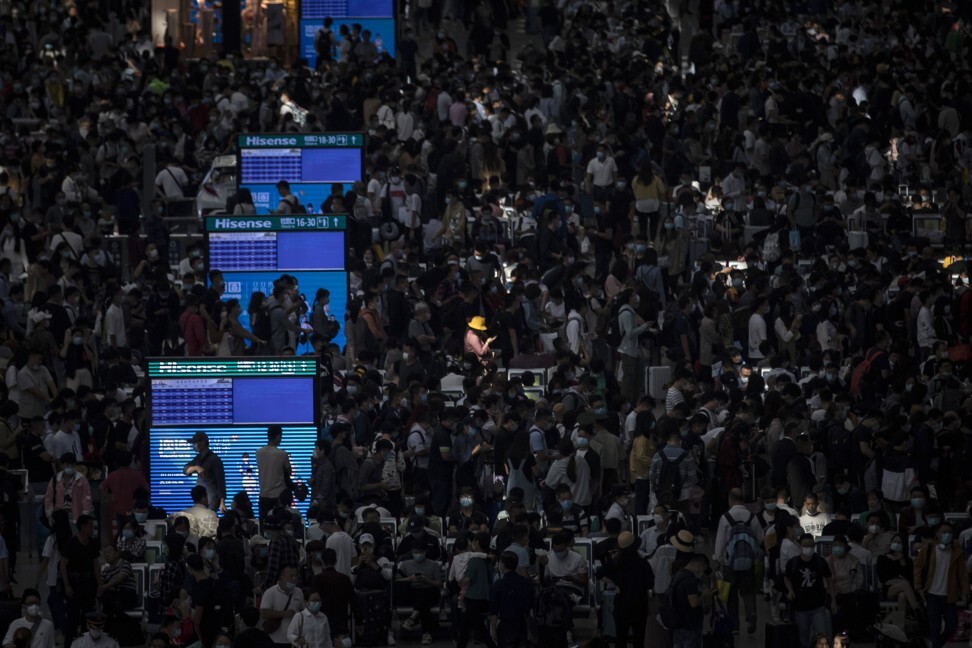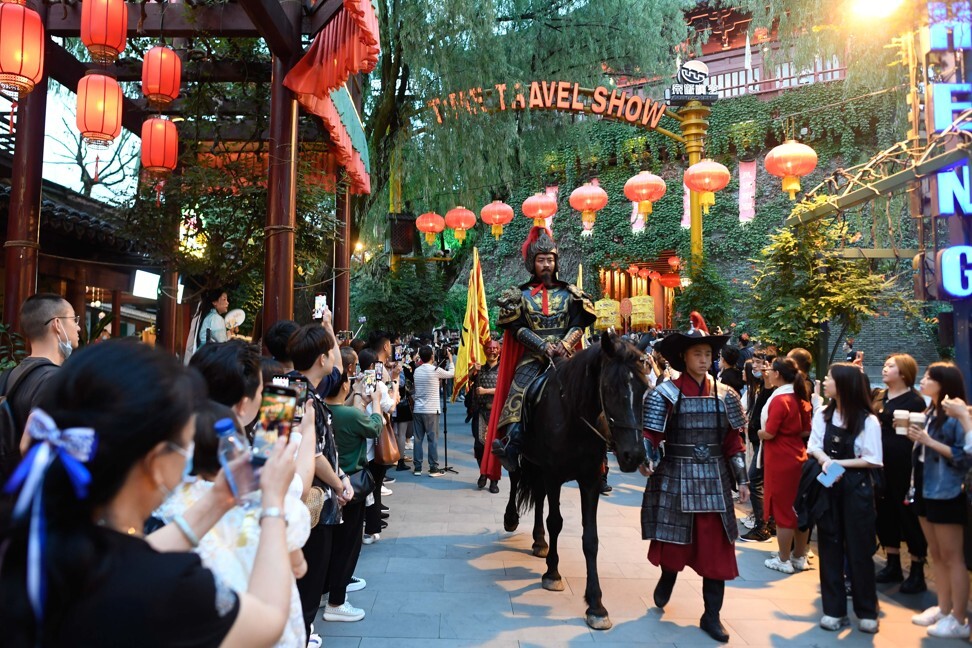
Millions of Chinese started to hit the road on Wednesday as China celebrates the first major holiday since the coronavirus was brought under control in the country.
There are likely to be about 600 million trips made across the nation during the eight-day break starting from Thursday, according to a report released by online travel service provider Trip, as people travel for leisure or to reunite with family after being largely cooped up by social distancing measures since last winter.
“I don’t want to waste the longest holiday this year,” said Zhou Wen, a 31-year-old cartoon artist from Beijing. “Health experts have warned of a coronavirus resurgence this winter. So I have to seize the chance now to visit my parents in my hometown whom I haven’t seen for nine months.”
This year’s holiday is the longest “golden week” holiday as the National Day holiday overlaps with the Mid-Autumn Festival, a holiday for family reunions. Seats on high-speed trains on several routes were snapped up in a few hours on the first day of presale early this month.

The total number of domestic flights taken during the holiday period is expected to exceed 15 million, a 10 per cent increase on last year, according to online travel booking website Qunar, noting that demand was boosted by many mainland travellers taking domestic trips who would have otherwise have gone overseas.
Zhou said she was lucky to have bought a railway ticket to Suzhou in the eastern province of Jiangsu, departing from Beijing on Wednesday night.
“I’ve packed three masks and a bottle of hand sanitiser for use on the train. I’ve reported the trip to my company and will report again after getting back,” she said.
“I’ll cherish every moment with my parents, having a daily walk with them under sweet-scented osmanthus trees, drinking tea with my father or watching soap operas with my mother, because the gathering is hard-won when we are living under the shadow of coronavirus.”
In Shanghai, to add to the holiday atmosphere, the municipal government will present light shows at the Bund landmark every evening during the holiday period.
Room prices at a luxury hotel at Shanghai Disneyland surged to 7,000-8,000 yuan (US$1028-$1,175) while a relatively lower-end hotel in the resort saw its price jump to around 3,500 yuan per night. Almost all hotels in Shanghai’s suburban areas have been booked out.
Stella Xia, a Shanghai woman in her 50s, and her husband will join five families to have dinner at a villa near the scenic Dianshan Lake on Wednesday evening. On Thursday, the couple will take their daughter to visit her grandparents and celebrate the Mid-Autumn Festival in a family tradition that sees relatives get together on important traditional festivals.
“I won’t go out to any tour sites on festivals because I hate crowds of people,” Xia said.

Guangzhou stay-at-home mother Yin Chen will also take her two daughters to their grandparents’ home on Thursday evening, having dinner before enjoying the full moon. For the rest of the break, Yin’s family will stay at home or visit the Guangzhou countryside.
“I don’t feel excited about this long holiday since there is still the shadow of the coronavirus and I can’t go anywhere I want,” Yin said.
“In past years during this season, my family flew to Yunnan to taste fresh and delicious mushrooms. But this year, it’s not safe to go there by air or rail. Planes and trains are full of passengers, leading to a high risk of virus transmission.”
China has reported no locally transmitted coronavirus cases for 44 days, the National Health Commission said on Wednesday.
Health experts have said there is no special risk on domestic trips. However, precautions are still needed, such as wearing a mask and maintaining capacity in tourist resorts no greater than 75 per cent because sporadic outbreaks could occur at any time.
Judy Shi, 42, who works with a Beijing public relations firm, said she cancelled a trip to Qingdao in the eastern province of Shandong after two asymptomatic cases were reported there last week.
The two patients work at the Qingdao Port and they offloaded a batch of imported frozen seafood on which coronavirus was later found. Although mass testing found no more cases, Shi abandoned her plan to enjoy seaside scenery and seafood with her 14-year-old daughter.
“I’d rather play safe because public schools do not encourage students to leave Beijing,” Shi said. “So we’ll stay in Beijing for the holiday, meeting friends, walking in parks and watching some movies.”

At the top of her must-see movie list is Leap, a film about the Chinese women’s national volleyball team by Hong Kong director Peter Chan and starring China-born Singaporean actress Gong Li. The Chinese presale box office of seven films on offer over the holiday period – including Leap – totalled 197 million yuan (US$29 million) by Tuesday, according to the Maoyan Entertainment movie ticketing app, indicating great holiday interest in movies.
According to a report by China International Capital, box office revenue for the period is expected to be between 3.6 billion yuan and 4.6 billion yuan – 86 to 110 per cent of takings at the same time last year – suggesting something of a recovery even though cinemas are limited to 75 per cent of audience capacity.
Some people are desperate for a holiday and a trip to the cinema or local park is not enough.
Viola Zeng, a Shenzhen-based business analyst, said only around half of her colleagues showed up to work on Wednesday, as many had left early to beat traffic or had simply taken the day off.
Zeng is leaving on Thursday morning for a desert tour in Gansu in the country’s northwest, as well as a tour of part of the ancient Silk Road. She had looked forward to her trip, having planned it out for weeks.
“It’s been so long since I last travelled, I have been so bored,” she said. “I even took a few more leave days, and will travel for a total of 11 days.”
Many will also hit the road early to avoid a traffic jam.
Guangdong transport authorities say road traffic out of the province will reach a peak from around 6pm Wednesday to 2am on Thursday, and again from 8am to 12pm on Thursday. Officials advise travellers to plan ahead and avoid congestion, especially on bridges, toll stations and where highways converge.
Shanghai’s transport authority has predicted that the most-used highways out of the city would be clogged up for 11 hours or more from noon on Wednesday until late into the night.
Chongming Island, in the east of Shanghai, has long been a hotspot for local residents to take time out and as such the authority says the road connecting the island and the urban area is expected to be congested for 17 hours on October 7 when most holidaymakers will be heading home.
From our archive







